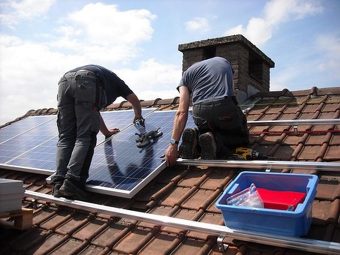
More than 9.8 million people around the world were working in clean energy in 2016, according to the latest data from the International Renewable Energy Association (IRENA).
A combination of falling costs and more stringent climate policies have led to the global renewables industry adding an extra three million jobs since 2012, IRENA said yesterday.
The growth has been largely driven by the wind and solar sectors, with employment across the two industries more than doubling in the last five years.
IRENA director-general Adnan Z Amin said he expects the renewables workforce to continue growing rapidly over the coming decade.
“Renewables are directly supporting broader socio-economic objectives, with employment creation increasingly recognised as a central component of the global energy transition,” he said in a statement. “As the scales continue to tip in favour of renewables, we expect that the number of people working in the renewables sector could reach 24 million by 2030, more than offsetting fossil-fuel job losses and becoming a major economic driver around the world.”
The solar industry was the biggest source of employment across the renewables sector last year, providing over three million jobs as total employment rose 12 per cent year-on-year.
Solar is followed by bioenergy in the employment rankings with 2.74 million jobs.
Wind energy employed 1.16 million people, solar heating and cooling provided around 800,000 jobs, and other technologies such as wave and tidal employed 450,000.
Large hydropower projects employed 1.52 million globally.
By country, China, Brazil, the US, India, Japan and Germany are the largest employers of green energy workers. China, for example, had 3.64 million people on the clean energy payroll in 2016, while in the US solar jobs grew 24.5 per cent in the last year to more than 260,000.
Despite the strong growth in the US solar market, the data also reveals the green energy workforce is slowly shifting eastwards. Asian countries accounted for 62 per cent of jobs in 2016, compared to 50 per cent in 2013. During the same period, the EU’s share of the global renewables workforce dipped from 19 per cent to 14 per cent.
The IRENA report also highlights Africa’s emerging role as a manufacturer and installer of utility-scale projects, while off-grid projects continue to play an important role in delivering electricity access to remote communities.
Source: businessgreen.com

